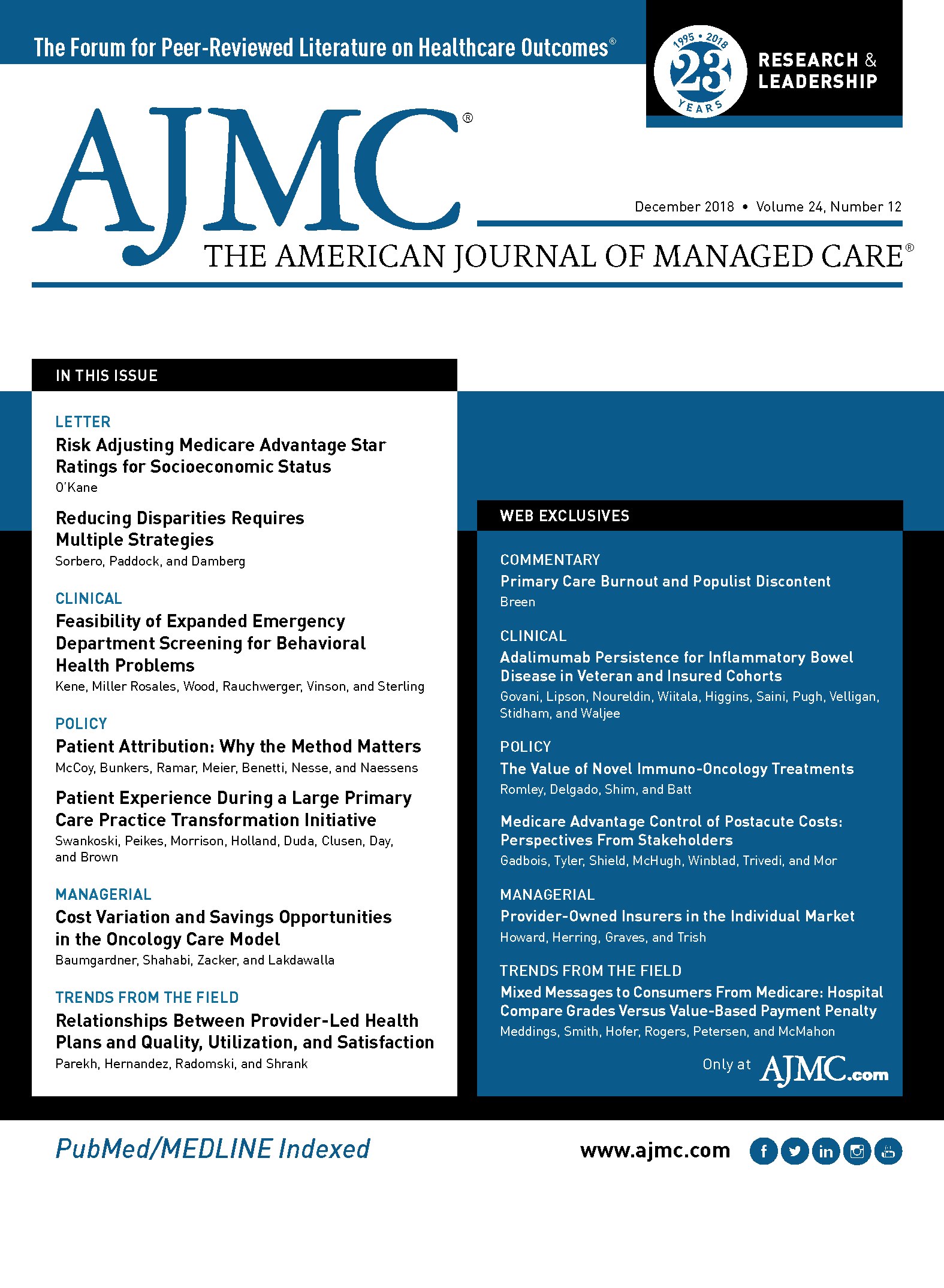- Center on Health Equity & Access
- Clinical
- Health Care Cost
- Health Care Delivery
- Insurance
- Policy
- Technology
- Value-Based Care
From the Editorial Board: Jonas de Souza, MD, MBA
Value-based care can be loosely defined as care that delivers value to the patient, with a focus on quality rather than on quantity of care. Arguably, the biggest advantage of value-based care is that it holds physicians and payers accountable for quality of care and costs through payment arrangements that involve financial risks and gains for payers and providers. Under this form of value-based payment, providers have opportunities to reap the financial benefits of cost savings but are also at financial risk if cost and quality do not meet agreed-upon targets. Payers can play an important role in helping providers succeed under these arrangements by sharing actionable data and insights that can help providers understand their patient populations and adjust care processes to improve quality.
The current transformation to value-based care must be informed by past efforts to reform healthcare delivery. The managed care backlash of the 1990s resulted from Americans’ concern that they were not receiving all the care they needed because of insurers’ pressure on physicians to keep costs low. Fears were real and widespread even though true incidents of withheld care may have been rare. In the migration to value-based care, the healthcare system will need to assure the public that medical care is not being compromised and, more importantly, that health outcomes are improving under value-based care.
Easier said than done, these initiatives usually require major organization support and transformation for both payers and providers. As an example, starting in 2015, Humana Inc set a goal to streamline its quality program through an internal Clinical Quality Metrics Alignment initiative. The objectives of the initiative were to (1) identify meaningful measures that matter, (2) standardize and align measures internally and with national organizations, and (3) prioritize those measures that have been shown to be linked to improved health outcomes. The list of measures used within Humana shrank from 1100 to 208. Additionally, a new infrastructure was created to provide ongoing oversight and governance so that this work could continue.
The current issue of The American Journal of Managed Care® explores a variety of challenges and opportunities associated with value-based approaches to healthcare delivery and payment. One included article issues a call for real-world evidence that can be used to guide value-oriented initiatives. Other articles document wins and lessons learned through new approaches to care delivery and patient engagement. Another outlines the need for reliable primary care physician attribution methodologies. Two articles explore provider-led health insurance as one way to improve value. Overall, they all emphasize the need for payers and providers to work together toward a common goal of improving the quality of healthcare.
Dr de Souza is a medical director at Humana, Inc. This letter was coauthored by Courtney Brown, PharmD, director of research consulting, and Misty Roberts, MSN, CPHQ, associate vice-president for clinical quality at Humana, Inc.

Blister Packs May Help Solve Medication Adherence Challenges and Lower Health Care Costs
June 10th 2025Julia Lucaci, PharmD, MS, of Becton, Dickinson and Company, discusses the benefits of blister packaging for chronic medications, advocating for payer incentives to boost medication adherence and improve health outcomes.
Listen
Specialty and Operator Status Influence Electronic Health Record Use Variation
January 22nd 2026Operators demonstrated specialty-specific differences in electronic health record efficiency, timeliness, and after-hours use, highlighting how workflow and training shape documentation behaviors across medical disciplines.
Read More

